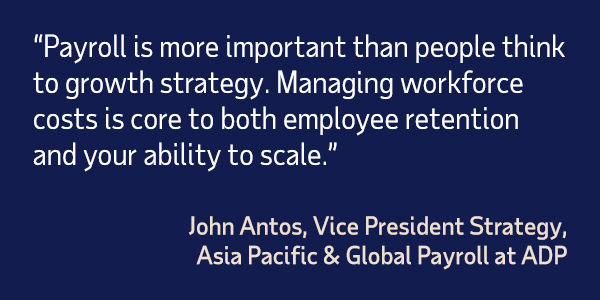Managing payroll efficiently and accurately is crucial for the success of any organization. From complying with legal regulations to ensuring timely payments, payroll encompasses various complexities that demand attention to detail. In this blog post, we’ll delve into 12 key considerations and best practices for handling payroll effectively, supported by examples, case studies, and references from around the world.

- Implement Robust Payroll Software: Investing in reliable payroll software can streamline processes and reduce errors. For example, companies Intuit QuickBooks, the most known accounting software and also Winmer for Busy Accounting software offer comprehensive payroll solutions with features like automated tax calculations and direct deposit options.
- Stay Updated with Legal Regulations: Keeping abreast of changing labor laws and tax regulations is paramount. For instance, in the United States, the introduction of the Tax Cuts and Jobs Act (TCJA) necessitated adjustments in payroll tax calculations and reporting.
Business is all about
solving peoples
problems at a profit.
-Paul Marsden.
3.Maintain Accurate Employee Records: Maintaining up-to-date employee records ensures correct tax withholdings and benefits administration. A case study by Bamboo HR highlights how digitizing employee records helped a company streamline payroll processes and minimize errors.
4.Ensure Data Security: Safeguarding sensitive payroll data is imperative. Implementing encryption protocols and access controls can prevent data breaches. The data breach at UK-based Morrisons underscores the importance of robust data security measures in payroll management.
5.Establish Clear Payroll Policies: Clear payroll policies foster transparency and mitigate misunderstandings. For example, Buffer, a fully remote company, transparently shares its payroll formula, ensuring employees understand how their compensation is calculated.
6.Regularly Reconcile Payroll Accounts: Reconciling payroll accounts regularly helps identify discrepancies and prevent fraud. A study by the Association of Certified Fraud Examiners (ACFE) found that proactive reconciliation significantly reduces the risk of payroll fraud.
7.Train Payroll Staff: Providing comprehensive training to payroll staff ensures proficiency in payroll processing and compliance. The Australian Payroll Association offers certified training programs to equip payroll professionals with the necessary skills and knowledge.
8.Implement Time Tracking Systems: Integrating time tracking systems with payroll software streamlines attendance management and enhances accuracy. TSheets by QuickBooks offers a user-friendly time tracking solution that seamlessly integrates with various payroll platforms.
9.Automate Payroll Processes: Automating repetitive payroll tasks minimizes errors and saves time. Kronos, a workforce management solution, offers automation features for payroll processing, reducing manual intervention and improving efficiency.
10.Conduct Regular Audits: Regular payroll audits help identify and rectify errors before they escalate. The Canadian Payroll Association recommends conducting internal audits at least twice a year to ensure compliance and accuracy.

11.Offer Self-Service Options: Providing employees with self-service portals for payroll inquiries and updates reduces administrative burden and empowers employees. Starbucks’ My Partner Info portal allows employees to access their payroll information and benefits seamlessly.
12.Outsource Payroll Processing if Necessary: Outsourcing payroll processing to experienced providers can alleviate administrative burdens and ensure compliance. Paychex and TriNet are examples of reputable payroll outsourcing companies trusted by businesses worldwide.
In conclusion, efficient and accurate payroll management is essential for organizational success. By staying updated with regulations, leveraging technology, and implementing best practices, businesses can streamline payroll processes, mitigate risks, and ensure employee satisfaction. However, it’s crucial to tailor these considerations to the unique needs and regulations of each organization. By prioritizing payroll excellence, businesses can build trust, enhance productivity, and drive success in the long run.

